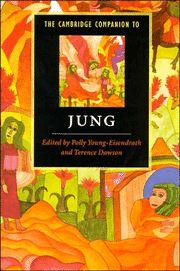Book contents
- Frontmatter
- Introduction
- Part 1 Jung's ideas and their context
- Part 2 Analytical psychology in practice
- Part 3 Analytical psychology in society
- 11 Gender and contrasexuality
- 12 A Jungian analysis of Homer's Odysseus
- 13 Jung, literature, and literary criticism
- 14 Jung and politics
- 15 Jung and religion
- Glossary
- Index
- References
11 - Gender and contrasexuality
Jung's contribution and beyond
from Part 3 - Analytical psychology in society
Published online by Cambridge University Press: 28 May 2006
- Frontmatter
- Introduction
- Part 1 Jung's ideas and their context
- Part 2 Analytical psychology in practice
- Part 3 Analytical psychology in society
- 11 Gender and contrasexuality
- 12 A Jungian analysis of Homer's Odysseus
- 13 Jung, literature, and literary criticism
- 14 Jung and politics
- 15 Jung and religion
- Glossary
- Index
- References
Summary
Sexuality belongs in this area of instability played out in the register of demand and desire, each sex coming to stand, mythically and exclusively, for that which could satisfy and complete the other. It is when the categories “male” and “female” are seen to represent an absolute and complementary division that they fall prey to a mystification in which the difficulty of sexuality instantly disappears.
(Jacqueline Rose, Introduction to J. Lacan, Feminine Sexuality, 1982, p. 33)Gender and difference
The universal division of the human community into two sexes, marked by signs and symbols of gender, has enduring and powerful effects on our psychological functioning as individuals, couples, and groups. Not only are we born into on-going stories about our own and the opposite sex, stories that constrain and engender possibilities for action and identity, but also we form strong internal images of femininity and masculinity. While we identify with one, we develop an unconscious complex around the Other (I capitalize the subjective Other to distinguish it from the interpersonal other).
- Type
- Chapter
- Information
- The Cambridge Companion to Jung , pp. 223 - 239Publisher: Cambridge University PressPrint publication year: 1997
References
- 4
- Cited by



